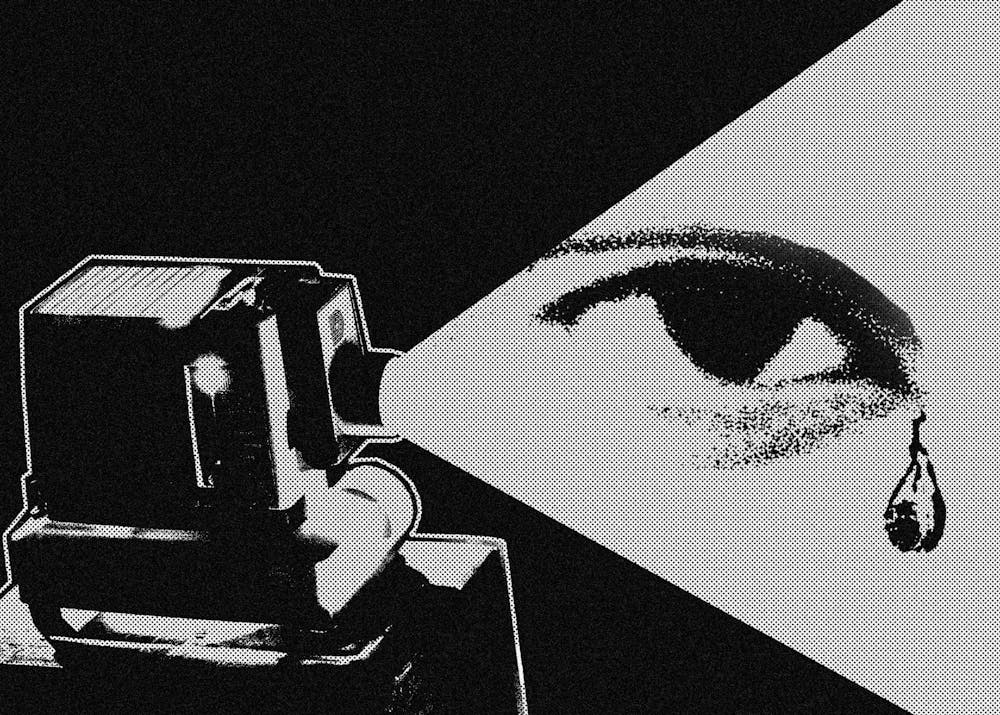A few weeks ago, I went to the drive-in movie with my boyfriend for a date night to see the newest remake of the 1992 horror classic, “Candyman.”
For the record, I hate scary movies, but this film had a certain buzz around it that interested me. The cast was mostly Black, and the director was the first Black female to have a film debut No. 1 in the U.S. box office.
To quote the great Issa Rae: “I’m rooting for everybody Black.”
So, I agreed to go and prepared myself for a night of hiding behind my hands from the inevitable jumpscares. But as we sat in the car and watched the movie, the true message of the film began to unfold.
The 2021 iteration of “Candyman” was less of a remade horror classic than it was a dialogue on the experience of the Black man in America.
Candyman, a Black man wrongly accused of lacing children’s candy with poison, became a martyr for all Black men who had been wrongly accused by the police or their white counterparts for crimes they did not commit.
What I thought would be a film full of supernatural scares turned out to include pieces of my own reality as a Black person in America.
To reiterate: I love supporting Black artistry.
Clothes, designer bags, food, content. You name it. If a Black person made it, I go out of my way to support and uplift it. But after watching this film, a realization came upon me.
Other than “Candyman,” the most recent Black-centered films and TV shows I’ve seen over the past few years have been hyper focused on the Black struggle.
They are stories of Black oppression, unfair police encounters and our long journey to equality. The goal of the films is to educate audiences on the Black experience, which I acknowledge and think is important.
But as a Black viewer, this focus in the cinema and television has become exhausting.
Enjoy what you're reading?
Signup for our newsletter
When I come to the movies or turn on the TV, most of the time I’m looking for an escape from reality. I’m drawn to Marvel films and trashy reality TV because they’re the complete opposite of my current life. (Although having the ability to fly or get paid to fight with my co-stars would be nice.)
But when all I’m watching is focused on the mistreatment of Black people in society, it’s hard for me to willingly support this Black creativity.
As a Black viewer, this continued cycle can be traumatic.
When I turn on the TV, I don’t want to be constantly reminded of the unfair treatment I can — and do — experience every day. It seems as though Hollywood is sending a message that Black creativity can only be accepted if it is focused on our struggle and oppression.
Just in the last year, two Black actors won Oscars for best actor and actress in a supporting role. Both films (“Judas and the Black Messiah” and “If Beale Street Could Talk”) are stories of frustrating and unjust periods of the Black experience.
It’s important to be aware and stay educated on our history, especially at a time when people are fighting to not teach it in school. But this trend was prominent even before the most recent racial reckoning of last year.
The Black experience is diverse and beautiful. Although it is important to educate others on our history, we are not just our oppression. We are people who want to see ourselves portrayed in films with the same standing as any white person. We can be superheroes, spies, doctors, lawyers, the president, a princess.
We can be anything.
But when Hollywood puts us in a shallow box, viewers come to accept and expect only to see our art in that way.
Sure, we have made some leaps and bounds. Captain America, played by Anthony Mackie, is a Black man (and, a phenomenal actor.) The 2020 psychological thriller “Tenet” starring a new young, up-and-coming Black actor, John David Washington, was a hit during the pandemic. But both of these men are surrounded and supported by a mostly white cast.
Entertainment impacts our view of the world. Including majority-Black casts in films that allow us to be seen as more than just slaves, prisoners or victims of oppression is just as important as educating non-Black people on our history and daily existence.




